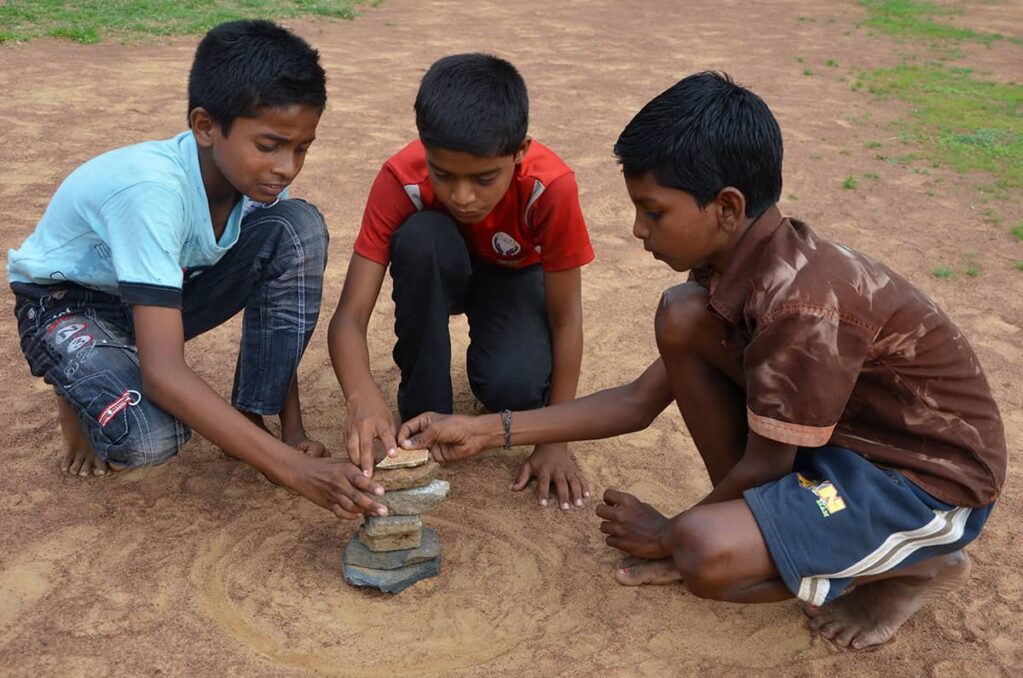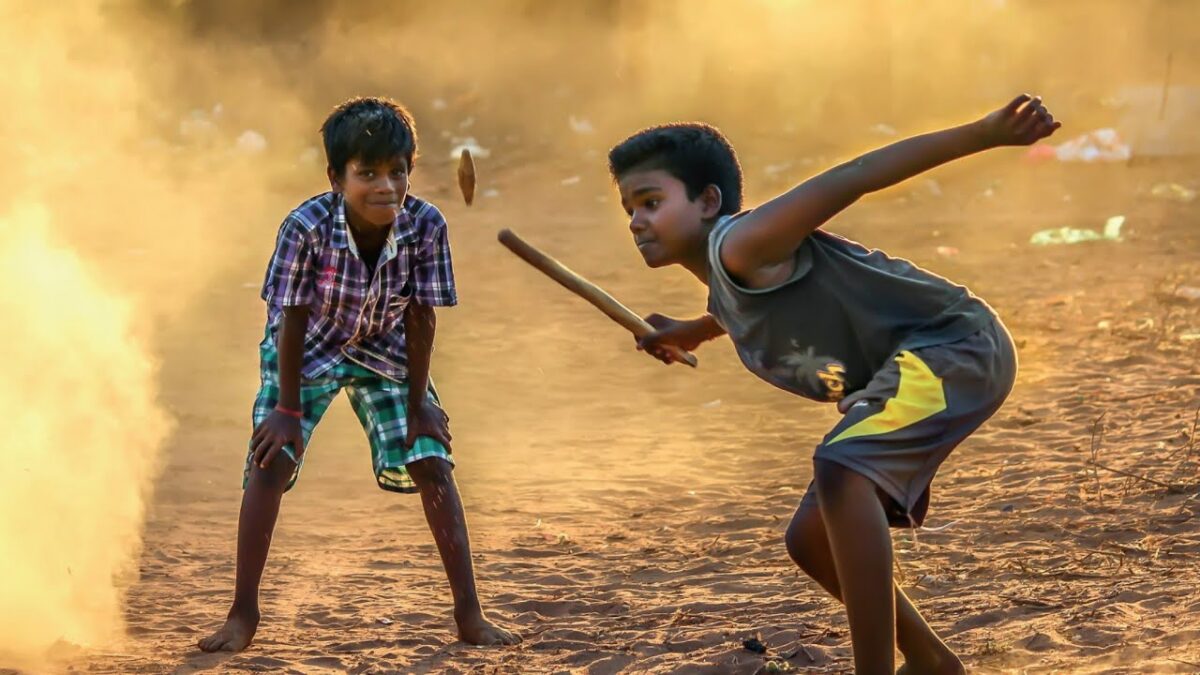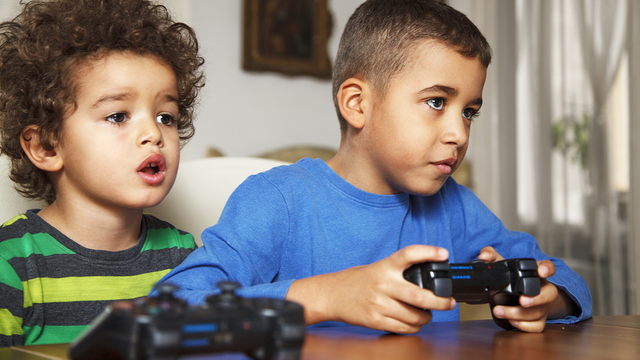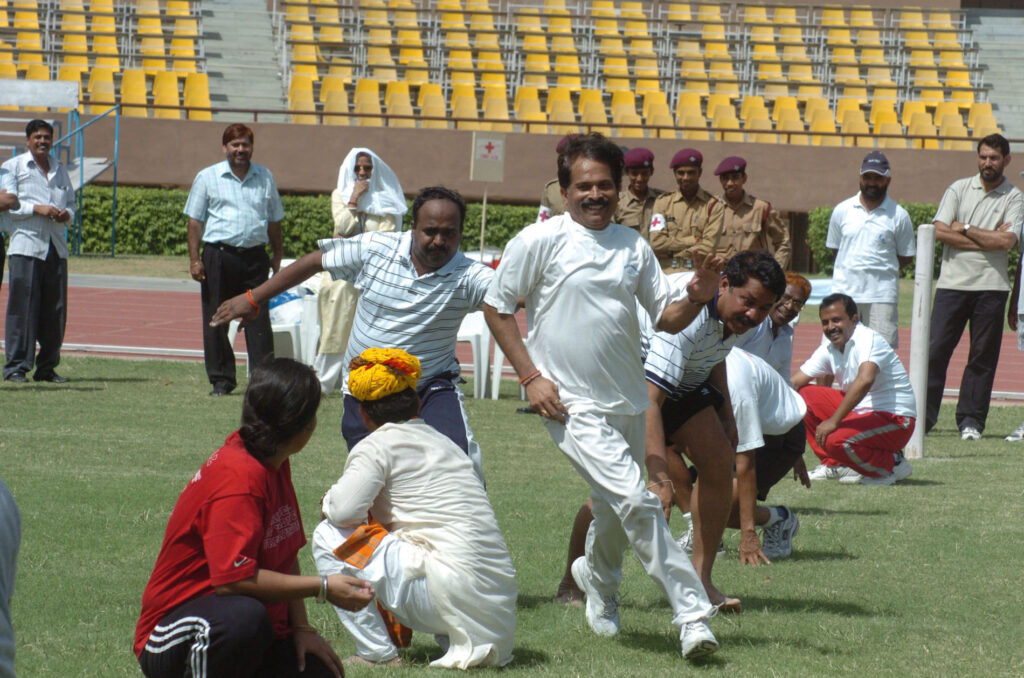Indian Traditional Games once reigned the spectrum of entertainment and prestige among game connoisseurs of India. In an era where the Internet was absent from public consciousness, these games laid the foundation of the fundamental luxuries of human’s self-actualisation needs: decorum, poise, pleasure, agility, strength and status in social settings. However, since the outbreak of modern games, antique games have started losing their glory as they have become lost in the void of nostalgia and memory.

Traditional Games are idolized not only because they are rooted at the heart of Indian Heritage and Culture, but because they are the dark horses of their league. In ancient times hunting was a common sport, traces could be found in Vallbhadeva’s Assam plates which mentioned Hunting of Buffaloes, whereas Doobi plates hinted on trapping of deers. Ashtapada, the archaic name of Chess is one of oldest games originated in India.
Indian Traditional Games- A good sport for sound health and well-being
Burn the extra calories
The moment you step outdoors, your body goes into motion and work mode. Chances are you will play for longer intervals if you decide to play outdoor games. There are traditional games such as 7 stones/Pitthu, Stapoo and Kabaddi that involve a considerate level of physical activity that can further your efforts of sound health. The Studies suggest that those who choose to step outside to play/exercise that includes activities like running and jogging are bound to burn 10% extra calories than those who prefer their workouts on treadmills.

Sensory skills and learning
Playing outside can have a good impact on a child’s gross motor development. Children learn to throw stones, catch balls and run to safeguard themselves from the attack while playing the traditional game of Pitthu or 7 stones. This not only improves their attention span. But they learn to develop sensory motor skills such as vision, touch, hearing, taste and smell.
Game of Chain is also known for enhancing mobility and flexibility in children. This traditional game is losing its popularity among children in India.
Mother Nature
Kids who adapt to playing in different environmental conditions are more sensitive towards the warnings around environmental change. It not only benefits the mood of your child but also uplifts his spirit and confidence in public settings.
Fresh air is known to be a good way to suspend the glum cloud over your head. When they say get some fresh air, they mean it. Children not only get vitamin D from the sun that strengthens their bones and prevents risks of illnesses, but they are also able to sleep well after a tiring day of play.
Understanding Culture
Kho-Kho is one of the most popular games in Indian community. History signifies its importance as the game was enjoyed by royals and commoners for its elements of run and chase. In ancient times, the game was played while riding on ‘raths’ or chariots, and came to be known as ‘Rathera’ by the emperors.
Encourage your children to find and learn more about their favourite games. This way they will come across interesting facts about the history and birth of the celebrated games.

Development of Risk-taking attitude
When children find themselves outside their houses, they are exposed to an open and independent environment where they learn to assess challenges and handle things on their own. They become more competent, adjustable and quick in their responses and decisions.
Children learn to dedicate their time and imagination to practice, and face new challenges with a creative outlook while also learning about new games where they feel no need for guidance and help.
The traditional game of glass marbles is a well-known sport which is played among children from rural areas. The allure of the game is collecting marbles and striking the ones that are carefully positioned on the floor.
Why is the survival of Indian Traditional Games necessary?
Research studies have established the benefits of playing video games online, they are known for improving your focus, attention span, and memory as well as response times. However that’s suggested only if you make sure you are active on the playground offline as well. But video games aren’t the only culprit of your child’s lack of knowledge of traditional Indian games.
The evolution of emerging and contemporary technology has brought about as many demerits as it has brought merits to the doorstep of human’s analytical minds . Social media has taken charge of the carriage that helps your brain function; independent of biased-opinions of people around you.
You think what your favourite influencers think, and you see what they want you to see. Adults and children alike have stopped paying mind to the information their brains consume.

Hence, there is little to no knowledge around the traditional games in the mainstream media or among the children. You don’t want millennials and Gen-z to be the last of generations who had the luxury to spend their time playing and bathing in sun, rain, and mud.
Future generations need to be dawned on and taught about the games that carved our canvas of childhood memories. Kids need to know about the exceptional and incredible history of traditional games and the joy they brought us. It is important that kids become self-reliable and responsible for the decisions and choices they make and form beliefs only after they learn about the art of ancient Indian cultures.
Plans for future of Traditional games in India
Traditional Games may not have played a huge role in influencing the socio-economic sector of our country. But they intensified and invigorated our bonds with people of all races, genders and sects. We were unified as a dynamic force, reflecting the diverse culture and traditions of India. The vibrant emotions we felt while being part of these antique games gave us confidence and hope for a bright future.

As their elders we are responsible to make sure their childhood isn’t deprived of the fun and joys we experienced. Government must inculcate these games in school sports. Communities must come together to organise contests and competitions that surround our traditional games, thus raising their awareness and popularity.












